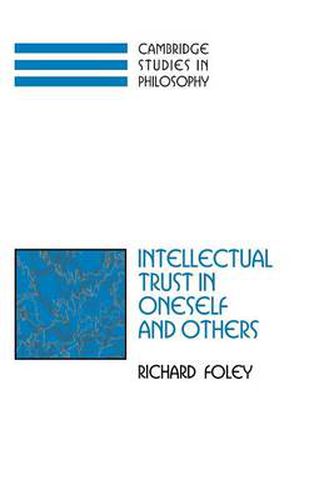Readings Newsletter
Become a Readings Member to make your shopping experience even easier.
Sign in or sign up for free!
You’re not far away from qualifying for FREE standard shipping within Australia
You’ve qualified for FREE standard shipping within Australia
The cart is loading…






To what degree should we rely on our own resources and methods to form opinions about important matters? To what degree should we depend on various authorities, such as a recognized expert or a social tradition? In this provocative account of intellectual trust and authority, Richard Foley argues that it can be reasonable to have intellectual trust in oneself even though it is not possible to provide a defense of the reliability of one’s faculties, methods, and opinions that does not beg the question. Moreover, he shows how this account of intellectual self-trust can be used to understand the degree to which it is reasonable to rely on alternative authorities. This book will be of interest to advanced students and professionals working in the fields of philosophy and the social sciences as well as anyone looking for a unified account of the issues at the center of intellectual trust.
$9.00 standard shipping within Australia
FREE standard shipping within Australia for orders over $100.00
Express & International shipping calculated at checkout
To what degree should we rely on our own resources and methods to form opinions about important matters? To what degree should we depend on various authorities, such as a recognized expert or a social tradition? In this provocative account of intellectual trust and authority, Richard Foley argues that it can be reasonable to have intellectual trust in oneself even though it is not possible to provide a defense of the reliability of one’s faculties, methods, and opinions that does not beg the question. Moreover, he shows how this account of intellectual self-trust can be used to understand the degree to which it is reasonable to rely on alternative authorities. This book will be of interest to advanced students and professionals working in the fields of philosophy and the social sciences as well as anyone looking for a unified account of the issues at the center of intellectual trust.